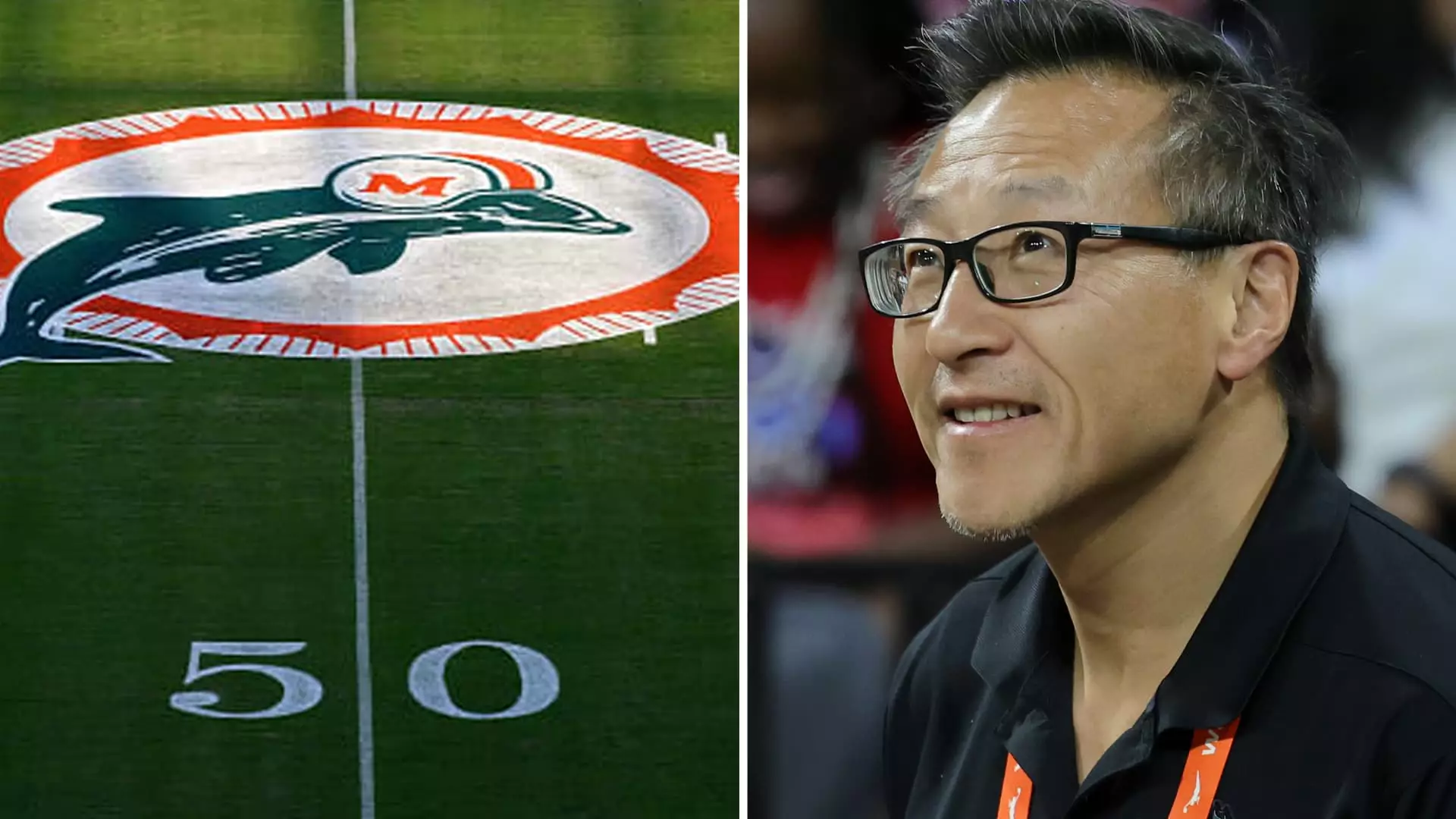The Miami Dolphins, a prominent franchise in the National Football League (NFL), are currently engaged in advanced negotiations to sell a minority stake in the team to private equity giant Ares Management and billionaire investor Joe Tsai. This significant development reflects a broader trend within the sports industry, characterized by team owners seeking to diversify their investments across multiple franchises and related assets, enabling them to generate additional revenue streams. The deal is estimated to value the Dolphins and associated properties, such as Hard Rock Stadium, the Miami Grand Prix Formula 1 race, and a substantial interest in the Miami Open, at a staggering $8.1 billion.
Such a partnership would mark a pivotal moment in the NFL’s investment landscape, as it would introduce private equity funding into the league for the first time since new financial regulations were voted in this past August. Private equity investments have become a popular avenue for team owners, allowing them to leverage outside capital to expand their operational capabilities and secure financial flexibility. According to estimates from CNBC, the Dolphins are valued at $7.1 billion, excluding the value of Hard Rock Stadium, highlighting their status as the eighth most valuable team in the NFL.
In this evolving dynamic, Ares Management is looking at acquiring a 10% equity stake in the Dolphins, while Tsai, who also owns the Brooklyn Nets, is negotiating for an additional 3%. Although negotiations have been reported widely, no contracts have been executed yet, and the absence of an established timeline leaves many questions unanswered for both fans and stakeholders alike.
Stephen Ross, who acquired the Dolphins in 2009 for $1.1 billion, serves as a notable figure within this narrative. In addition to being the team owner, he holds the unique position of also managing Hard Rock Stadium, which grants him the opportunity to earn revenue not just from the Dolphins games but also from other high-profile events like the Miami Grand Prix and the Miami Open tennis tournament. With reported revenues hitting $673 million in 2023, the financial stakes involved in these negotiations cannot be understated, especially considering that Ross previously declined a monumental $10 billion offer for the club, showing his commitment to keeping the team within his family lineage.
As part of the NFL’s broader strategy to keep pace with rising franchise valuations, the league’s owners recently voted in favor of allowing private equity firms to invest a maximum of 10% into teams. This shift marks the NFL as the last major professional sports league to embrace such financial strategies, contrasting sharply with leagues like the NBA and MLB, where private investments have been commonplace for years. The transition reflects the changing nature of sports ownership—highlighting how financial constraints and rising valuations present significant challenges in attracting potential buyers for teams.
Ares Management, with its extensive portfolio exceeding $450 billion in assets, was among a select group approved for investments in NFL franchises. This decision potentially reshapes the facade of team ownership, offering a glimpse into a future where financial partnerships might become commonplace within the league.
Joe Tsai’s interest in acquiring a stake in the Miami Dolphins further illustrates the trend of wealthy individuals consolidating their sports investments. Already, Tsai has established a formidable sports empire, owning the Brooklyn Nets, the New York Liberty, and the Barclays Center, among other teams including the Premier Lacrosse teams, the San Diego Seals, and the Las Vegas Desert Dogs.
Tsai’s diverse ownership portfolio underscores a strategic approach to sports investment, highlighting a vision where controlling multiple franchises enhances market influence and financial returns. With the global sports landscape becoming increasingly competitive and lucrative, such conglomerates may hold a significant advantage in tapping into new revenue opportunities.
As the Miami Dolphins navigate this path towards potential private equity investments, they stand at a crossroads that could redefine both the future of the franchise and the landscape of sports ownership within the NFL. This venture reflects a shift towards more complex financial strategies, potentially ushering in a new wave of economic possibilities for both teams and investors alike. The coming months will likely reveal whether this partnership can materialize, and how it could set benchmarks for future investments in professional sports. The tradition of franchise ownership is evolving, and the Miami Dolphins could well be at the forefront of this transformation.

